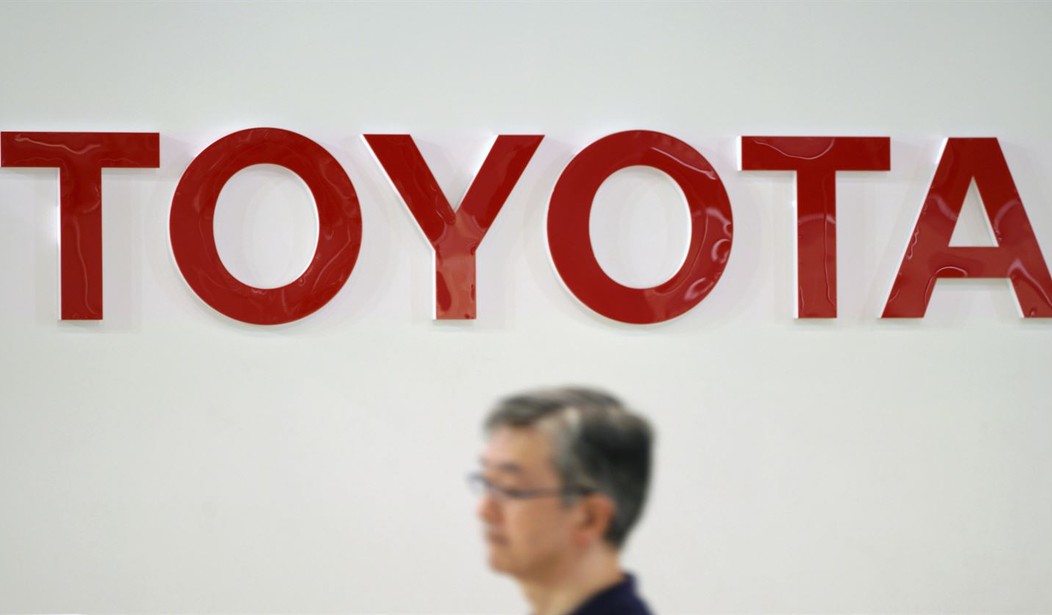Last week, Toyota became the latest major corporation to drop the Human Rights Campaign’s Corporate Equality Index (CEI), and otherwise pull back from the grievously-misnamed regimen of racial bias, intolerance, and antisemitism called “diversity, equity and inclusion” (DEI). Same-sex unions are still outlawed in Japan, so one might think that Toyota is responding to the demands of that country’s more conservative culture. This would be a mistake: rejection of DEI is all-American, and happening because the “Good Ol’ Boys” (and girls) of America’s flyover states, and the common sense thinking they represent, are finally being heard.
As a child, I grew up watching the Dukes of Hazzard; “Good Ol’ Boys” is how singer Waylon Jennings described the protagonists in the theme song. Despite its use of Confederate imagery, the show explicitly eschewed racism—black men appeared as allies of both the Dukes and the corrupt lawmen who chased them. Set in a fictional Georgia county, the show was about a legal system abused to persecute decent, otherwise law-abiding Americans; the heroes were those who fought to stay ahead of the unscrupulous sheriff and town commissioner. Each episode pitted plain, decent, salt-of-the-earth Americans against a biased system.
Life often imitates art. Today, the biased system persecuting the decent is not run by lawmakers, but by organizations that have set themselves up as the arbiters of a redefined morality. The Human Rights Campaign (HRC) and its CEI are Exhibit A.
The pro-LGBTQ+ HRC rolled out its CEI standards in 2002, long before gay marriage was legalized across the country. At that time, HRC merely called for protections for LGBT workers from discrimination and healthcare for same-sex domestic partners. With each victory, though, its agenda became more extreme. Genuine opposition to racism and intolerance has been subsumed under HRC’s demands for ideological conformity and outright bigotry towards traditional faiths and those who practice them.
Recommended
In the wake of the killing of George Floyd by Minneapolis police, programs celebrating “Diversity, Equity, and Inclusion” (DEI) became the order of the day—and HRC clearly spotted and leveraged an opportunity. The post-George Floyd version of CEI mandates not only hiring for identity rather than talent and gender-neutral dress codes, but for harmful “transgender” surgeries to be standard benefits in a company healthcare plan.
The HRC brags that their “CEI touches every industry and sector,” and that organizations from Disney to Coca-Cola flaunt their scores. Yet CEI means more than insidious social credit: the biggest investment firms reportedly factor CEI scores into a company’s “Environmental, Social, and Governance” (ESG) score, which impacts credit ratings, loans, investments, and overall profits. A company that refuses to bend the knee to the HRC, in other words, may be deemed risky or poorly-managed on that basis alone. It is no wonder that, although only 13 companies met HRC’s modest goals in 2002, 545 caved to all of CEI’s “evolved” requirements found in HRC’s most recent report.
Thankfully, hope is not lost. The people have had enough, and, in words the Dukes used a few times, “they mean business.” The fact that a foreign manufacturer has now heard reason indicates how loud their voice has become.
The trend started with deeply American brands, a short list that HRC targeted on its website for abandoning its CEI: Ford, Jack Daniel’s, Lowe’s, Tractor Supply Co., Harley-Davidson, Molson Coors, and [John] Deere & Co. But now the list has grown so long that HRC lists only three.
It already gave up on Harley-Davidson, for example, a brand with loyalists who approach cult-level devotion. After Harley instituted DEI programs, those fans were smashing their coffee mugs, covering their tattoos, and demanding the motorcycle maker fire its CEO.
Unsurprisingly, Harley responded. It announced that it would no longer report to the HRC, and would henceforth sponsor only motorcycling and community programs.
It turns out that a motivated customer base means a lot more for the bottom line than a good ESG score. Apparently, HRC considers Harley-Davidson a lost cause, at least for the time being.
Similarly, Tractor Supply—a staple brand for American farmers—jettisoned its CEI compliance and sponsorship of pride festivals after customers objected, saying the company will instead “focus on rural America priorities.” Again, HRC has given up for now on reversing Tractor Supply’s course correction.
Now that abandoning the CEI diktat has become a trend, HRC and allies have taken note. But instead of revising their intolerant and divisive agenda, they instead blame “small, well-funded… right-wing activists”—people like Robby Starbuck in particular, a social media warrior with a large following.
This could yet be DEI’s undoing, because Starbuck succeeds only because his message resonates. .
Suggesting that companies hire with zero regard for an applicant's race, religion, or national origin, much less with whom he or she shares a bedroom, is not a right-wing cause—unless one wishes to argue that right-wingers are the only non-racists in the country.
Rabbi Yaakov Menken is the managing director of the Coalition for Jewish Values.

























Join the conversation as a VIP Member